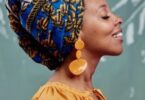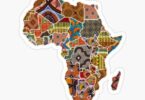About one year ago Zuri set out to answer a seemingly simple question about the heritage: where exactly in Africa did her grandparents come from? All she needed to do is spit into some test tubes and wait for the results.
Zuri is one of the 26 million+ people who have used at-home DNA kits to try and map up their family trees. At-home DNA ancestry tests are massively popular both in the US and abroad, not just because they are affordable and easy to use, but also because they offer an entertaining and informative way of learning who your ancestors were, where they came from and even how your genes may impact on your health.
Zuri’s Epic DNA Testing Experience
Zuri had moved into the US to study nursing. She later got a green card and decided to stay. She didn’t have any close relatives that she knew of living in the US. To the best of her knowledge, her parents, two siblings and extended family all lived in Kenya, East Africa.
Zuri’s father, Mr. Hamisi, was born around 1945 and raised in the coastal region of Kenya. Her paternal grandparents were also born, and raised in Kenya.
Zuri’s mom, Mrs. Adia Hamisi, was born around 1951 and raised in the coastal region of Kenya.
Zuri never met her maternal grandfather, but she heard stories that he was a brave local chief who was killed by British colonialists when they invaded the country.
Her maternal grandmother, Imani, too was born and raised in coastal Kenya. She neither remarried nor had any more kids after her husband (Zuri’s grandfather) died. She passed away when Zuri was 14, and Zuri says that she misses her very much.
“Granny told us the best stories as kids,” says Zuri. “But her stories weren’t always true. I think she might have been a bit of a compulsive liar- we never knew which of her stories were true!”
Zuri recalls that her grandmother often told them of how she stole a baby mermaid from the ocean and raised it as her own- and that that baby was Zuri’s mother, Adia.
“She told us that my mother was a ‘daughter of the sea’ she rescued from the Indian Ocean, but we mostly dismissed it as one of her tall tales.”
All in all, everyone Zuri knew to be a blood relative was born and raised in Kenya. She, therefore, didn’t expect that the results of her DNA test would show that she had any familial origins beyond the African continent.
However, as Zuri puts it: “Thousands of your ancestors have lived before you. Each of their uniqueness is added to a collective which is now your life and DNA. Analyzing your DNA is, therefore, guaranteed to rattle a few skeletons and reveal some ghosts of the past you never thought existed.”
Why Even Bother Testing Your DNA?
Zuri decided to test her DNA after reading the fascinating story of how the Golden State Killer was apprehended in 2018 after police investigators matched DNA samples from an old crime scene with the DNA records of the killer’s relatives.
“I wanted to find out where exactly I come from in Africa so that I can tell my kids,” Says Zuri a 34-year-old mother of two. “As a woman living in the diaspora, I also hoped that the knowledge would give me a sense of pride in my African heritage and origin.”
Like Zuri, hundreds of thousands of Africans in the diaspora are turning to personal DNA testing technology to uncover critical pieces of their history.
Gina Paige, the cofounder of AfricanAncestry, says that in addition to tearing African families apart, slavery and slave trade robbed many people of African descent their true names, identity, languages and even a way to honor their ancestors. DNA testing, however, gives them a way to accurately trace their roots to specific countries, regions and ethnic groups in Africa.
How Do I Get My DNA Test Kit?
There are various consumer DNA testing companies. Popular names include AncestryDNA, 23andMe, LivingDNA, AfricanAncestry, MyHeritage.
Each company has a unique DNA database. Generally, the larger the company’s database is, the more specific is its DNA test at pinpointing precisely from whence your ancestors originated.
Different companies analyze different DNA components. The component a particular DNA ancestry test analyzes is thus a critical factor to consider when tracing your DNA.
-
- A Y-DNA test will, for instance, trace your parental lineage (women don’t have the chromosome Y).
- mtDNA tests, on the other hand, track a person’s maternal lineage (mtDNA stands for mitochondrion DNA which is inherited exclusively from one’s mother).
- To trace both sides of your ancestry, you’ll need to take an autosomal DNA test, but this test won’t take you as far back in time as the Y-DNA and mtDNA tests.
Therefore, it’s important to note that all DNA testing kits are not alike; neither can they cater to the needs of all communities. AfricanAncestry is, for example, solely focused on helping people of African descent trace their ancestral roots back to Africa.
How to Do A DNA Ancestry Test at Home
Zuri ordered her DNA testing kit online from ancestry.com. After following the online instructions on how to activate it, she put her saliva sample in a test tube, sealed it and put in a prepaid envelope.
The sample was then sent to a lab for analysis.
Through various genotyping techniques, researchers at a consumer DNA testing company like ancestry.com will analyze the sample you send and assemble a comprehensive report of your genetic makeup. They’ll then compare this report with a vast set of DNA samples in their database. In doing so, the researchers are then able to discover your ethnicity, geographic ancestry, family tree and genetic health markers.
Zuri’s results were out after about two months, and she was notified via email.
She found that she was 9.25% Bantu-speaking South African, 25% Bantu-speaking East African, 30% North European, 31.75% South African Khoisan!
To her, the results didn’t make sense at all.
“I couldn’t understand how I could be South African and European- and not be East African. So, I repeated the test using two more kits from different DNA-testing companies. The results were consistent, so I decided to dig deeper.”
Zuri Goes Back to Africa
Zuri decided to embark on a genealogy journey to uncover the true history behind her ancestry.
Genealogy journeys (aka Ancestry travel) are quite popular with consumers who want to discover their heritage. Companies like family tree tours and classic journeys host trips around the world for travelers on a quest to discover their heritage. 23AndMe also has a partnership with Airbnb through which at-home genetic testing consumers get travel recommendations based on the results of their DNA test.
However, for Africans like Zuri, the ancestry travel industry has been somewhat slow to connect with black consumers like herself. Notwithstanding, Zuri was determined to go back to her roots, and she brought her two kids along on this life-changing pilgrimage.
Her first stop was back at her Kenyan home. Through the stories told to her and her children by the existing elders, Zuri learnt that four critical facts:
-
- Her mother’s name Adia means ‘gift’ in Swahili.
- Zuri’s grandmother, Imani, wasn’t Adia’s biological grandmother.
- As an infant, Zuri’s mother (Adia) was given to Imani (Zuri’s grandmother) as a gift to the chief by traders (possibly smugglers) passing through East Africa on their way to India from the Cape Town.
- Imani raised Adia as her own child and never told her that she was adopted.
That’s when Zuri realized that Imani might have been telling the truth all along. Adia was indeed a “daughter of the sea”- the infant Adia was given to Imani by seafarers!
“Even as a child, my skin was fairer than that of my friends and agemates. But since nobody said anything, I didn’t think there was a skeleton in that cupboard!” says Adia.
That explained why Zuri’s DNA results indicated that she had deep South African roots.
Nonetheless, she still had questions about her European origins. Since she had no way of contacting the traders who brought her mother to East Africa, Zuri went to South Africa to find out more about her mother’s history.
Searching through public records didn’t yield any useful information about Adia’s biological parents. However, after speaking to a South African historian, Zuri made a shocking discovery. Her mother, Adia, was probably given away at birth.
Then came the question: why would anyone give away their baby?
Zuri and the historian soon formed a theory based on the historical events happening in South Africa at around the time when Adia was born.
Adia’s biological father was European (probably Dutch), and her mother was South African (probably Khoisan). Adia was conceived at the height of apartheid.
A Population Registration and Immorality Act had been passed in 1950 probably months before Adia was born. The act prohibited sexual relationships between people of different races.
When Adia was born, she probably had olive-colored skin, and hair that would most likely have passed the infamous pencil test. In fear of the grim consequences for her and her newborn baby, Adia’s real mom probably gave up her and hoped that she’d have a better life outside South Africa.
It’s also possible that Adia’s mother didn’t have a choice in the matter, and was forced to give her newborn daughter up- for instance, by her family because they didn’t want a child who was different from them.
“I’m certain that my biological grandmother gave her daughter up for altruistic reasons.” Says Zuri.
DNA Tracing Results May Shock You, So Be Prepared
Tracking your African heritage using DNA tracing will lead you on an incredible journey of self-discovery filled with layered and complex emotions. It’s a journey that will help you uncover your history and learn firsthand about the places, times and events that your ancestors lived through.
“When I first decided to buy that DNA testing kit, I didn’t know what to expect. However, the test took me on a journey that taught me more about the turmoil of apartheid than all of my years of education.”-Zuri
Zuri isn’t the only one who shares this sentiment. DNA ancestry tests have helped numerous Africans in the diaspora find their way back home. In their different journeys, they’ve learned about the untold stories of African kings and queens, the horrors of the trans-Atlantic slave trade, African religions like voodoo, etc.
Zuri’s advice to anyone thinking of tracing their roots based on DNA testing is that you should do it with an open mind.
“The result may reveal things that will rock your perceptions about yourself, your family, ethnicity and ancestry. So, it’s best you head into it with an open mind.”
Have you traced your ancestry through DNA testing? Were there any surprises? We’d love to hear your story!
Note: Experts at classicjourneys.com specifically curated a guide to help travelers plan a meaningful genealogy trip. It details the different ways to explore your ancestor’s homelands, while also utilizing points and miles to save on travel costs.
Story by: Matthew Macharia










